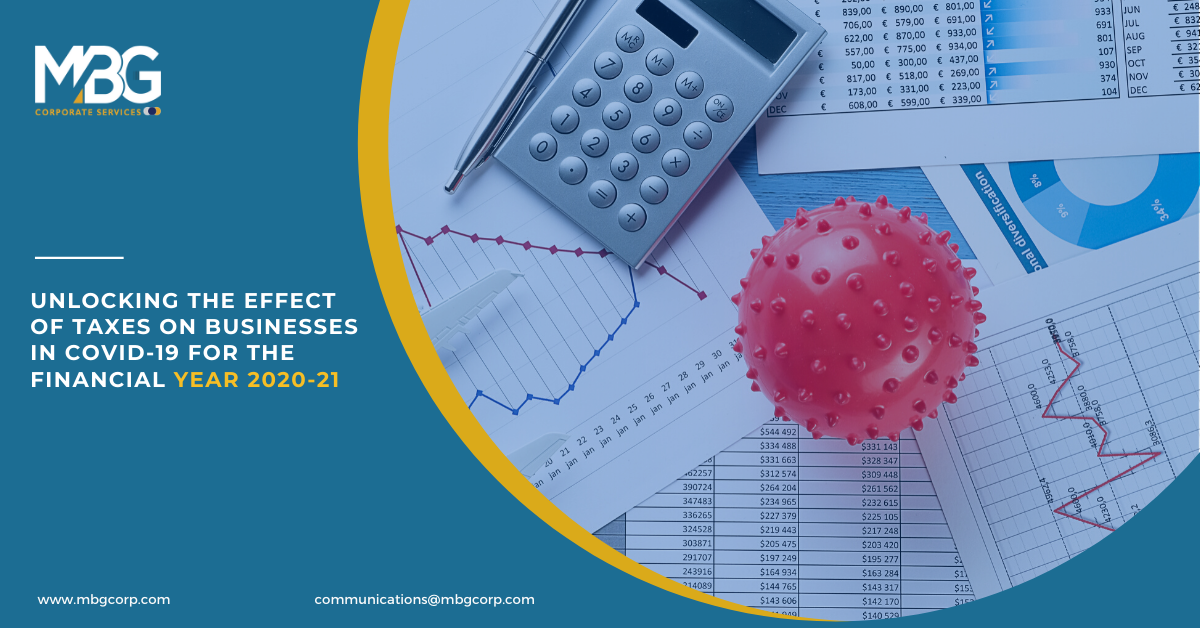Unlocking the Effect of Taxes on Businesses in Covid-19 for the Financial Year 2020-21

At a time when economic activities have come to a standstill on account of lockdowns in times of Covid-19, the government already provided a leeway in tax regulations as much-needed relief to the taxpayers. Some of these relief measures include an extension of timelines for filing of tax forms and making tax payment till 30th June 2020, reducing the interest rates on delayed payment of taxes from 12% p.a. / 18% p.a. to 9% p.a., quick refunds to taxpayers to resolve potential cash flow issues, etc.
The reliefs were short-term (for instance the reduced rate of interest @ 9% is applicable for tax payments made till 30th June 2020) and were intended to support business cash outflows and ease compliance during the pandemic emergency. However, it now becomes essential to analyze the impact of COVID-19 on tax outflows for businesses and the corresponding impact on the arm’s length price of international transactions between group entities.
Key Considerations in Corporate Tax Management for the financial year 2020-21
The Income Tax Law prescribes the payment of corporate advance tax in four installments falling due by the 15th of last month of each quarter, based on management projections and estimates for a financial year.
Considering the situation of Covid-19, it is imperative for businesses in the financial year 2020-21 to review:
- Business continuity plan and existing revenue model amidst the situation of Covid-19 and the corresponding impact on the existing operations and impairment of business assets;
- Review of business agreements with vendors/suppliers and enforceability of contracts and realization of payments;
- Realistic business projections based on market analysis;
- Obtaining possible tax reliefs to minimize tax liabilities
- Losses, if any, earned by such routine enterprise generated due to capacity utilization and/or slack in market demand due to the COVID-19 situation should ideally be borne by the principal which performs key functions and bears major economic risks;
- Identify the losses caused due to this situation and to prepare corresponding documentation to explain which party should bear the losses;
- Change in the method of valuation of goods imported by the Indian subsidiaries to cater to the loss situation will trigger valuation impact under customs (Special Valuation Branch or ‘SVB’ procedure);
- Usage of current year data for identifying comparable companies instead of the previous year’s multiple data.
Tag: Taxes on Businesses in Covid-19


